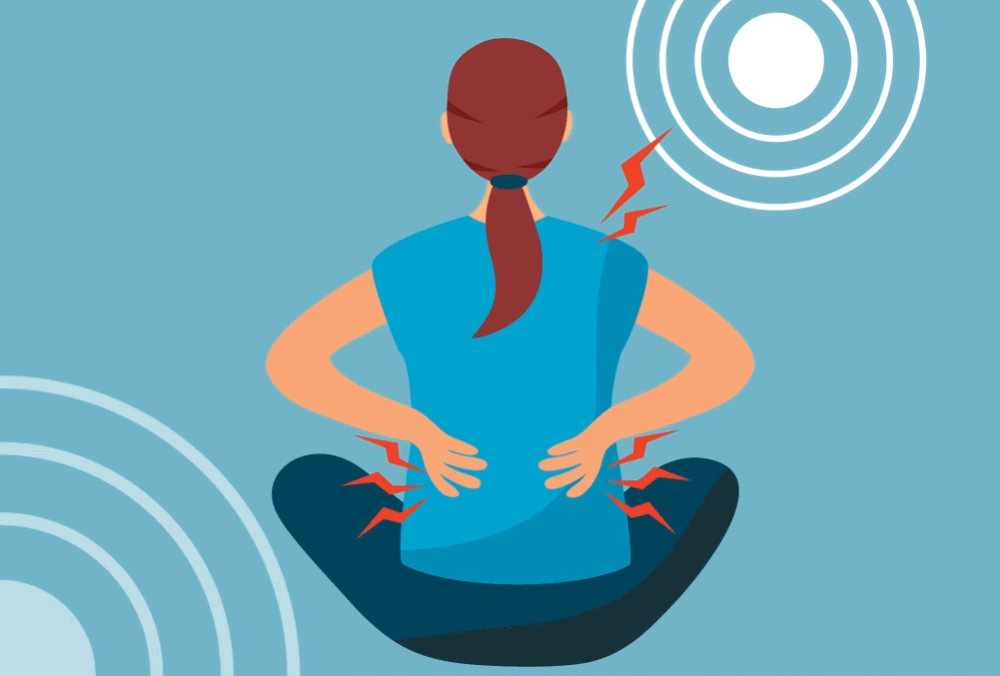
Experts at Keck Medicine of USC explain common sources of back pain — and what the discomfort is trying to tell you.
Back pain doesn’t always start where you feel it. The aches can sometimes originate elsewhere in the body, and they could be a sign of a more serious issue.
Here are some conditions and back pain triggers to know, as well as the recommended treatments.
1. Sciatica may be the reason for your lower back pain
A medical term for a pinched nerve in the lower back, sciatica causes pain to radiate down the body. Causes include a herniated (slipped) disc, spinal stenosis, pelvic injury or a tumor. Arthritic changes may also trigger sciatica.
“These conditions can compress the sciatic nerve” and incite pain, says Christopher Ornelas, MD, chief of spine medicine for the USC Spine Center. Treatments include physical therapy, medications and spinal epidural.
2. Workout or physical activity can cause back pain
Excess pressure on a muscle or tendon may overstretch it, and those in the lower back often bear the brunt. This injury can happen when people overdo their workouts or make mistakes while lifting.
“The most effective treatments are usually nonoperative,” says Ram Alluri, MD, of the USC Spine Center. Among them: rest, ice, physical therapy and over-the-counter anti-inflammatories like ibuprofen.
3. Kidney stones can trigger severe back pain
These mineral deposits can prompt waves of sharp, cramping pain in your back. “While people can have a genetic predisposition, the risk can be heightened by chronic dehydration, certain medications and a diet with too much protein,” says Gerhard Fuchs, MD, of USC Urology.
If you suspect you have a kidney stone, call your doctor. They’ll confirm the diagnosis, then determine the best course of action, such as therapeutic sound waves to break up the kidney stones.
4. Back pain can be a warning sign of a heart attack
Also known as myocardial infarction, this event commonly presents as pain in the upper back — especially in women (whose heart attack symptoms often differ from men’s).
“If you’re experiencing this pain, look for other symptoms such as sweating, shortness of breath and nausea,” says Edris Alderwish, MD, a cardiologist at Keck Medicine. Call 911, then sit on the floor with your knees bent and your head and shoulders supported.
5. Lower back pain during your period may signal another problem
Lower back pain is common during menstruation. If over-the-counter pain relievers don’t help, a doctor can determine whether you may have a condition like endometriosis or fibroids.
“If period pain is excessive or continues throughout the month, we may order diagnostic imaging,” says Anna Elizabeth Reinert, MD, an OB/GYN at Keck Medicine. Oral contraceptives can treat severe period pain; minimally invasive surgery is most effective for fibroids and endometriosis.


